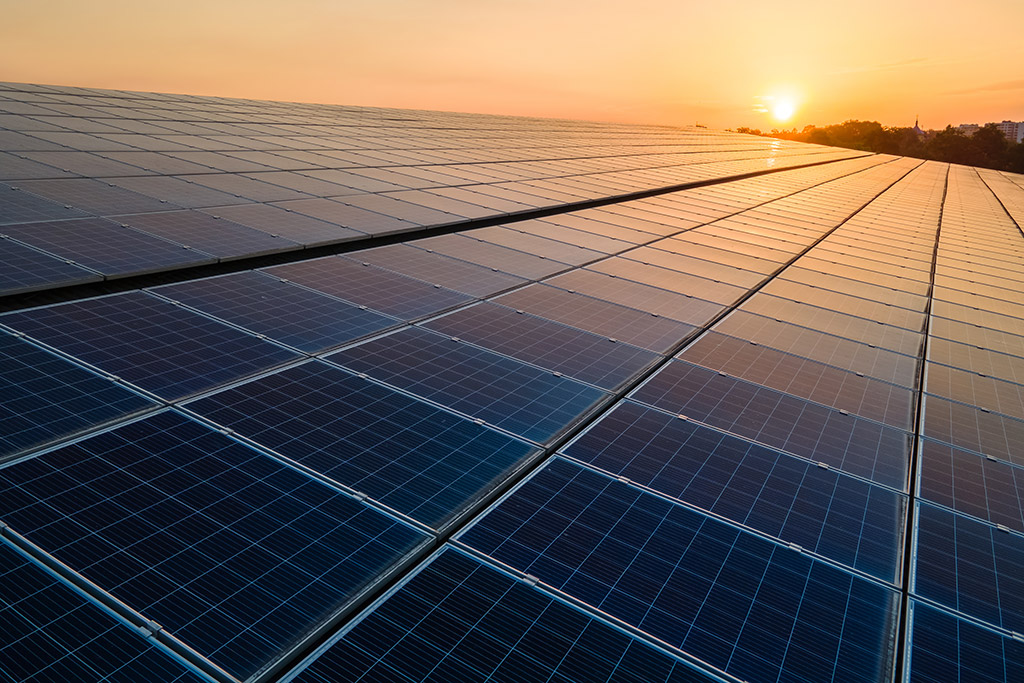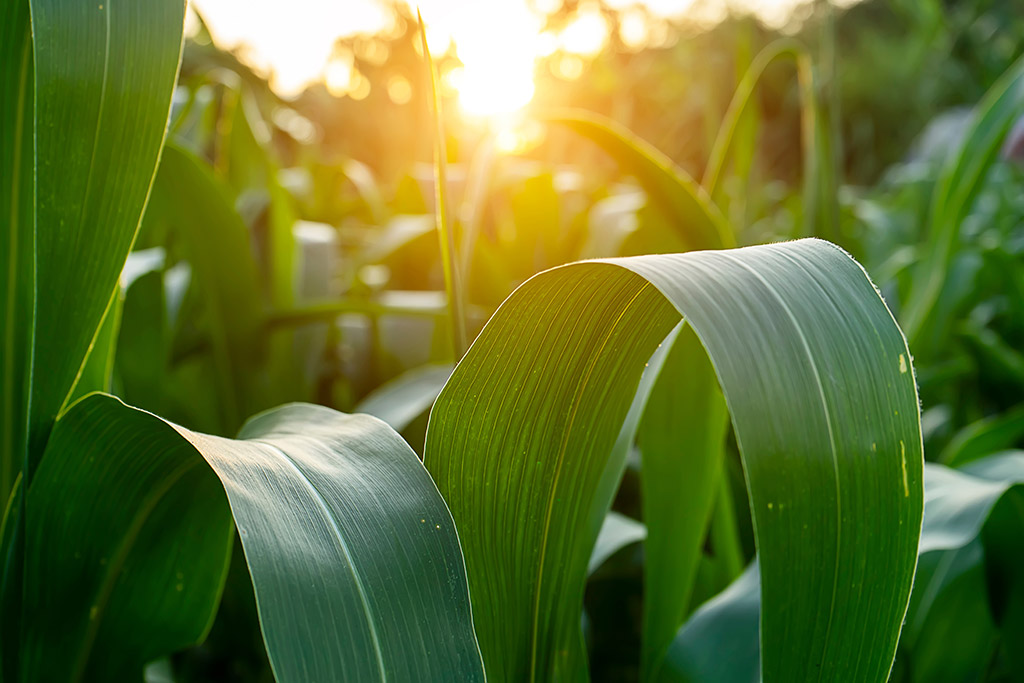Reducing
Greenhouse Gas Emissions
Greenhouse gases (GHGs) allow light from the sun to enter the atmosphere and warm the Earth but prevent heat from escaping. Without GHGs, the Earth would be uninhabitably cold. Too many GHGs, however, cause the average temperature to rise over time. All industries must work together to minimize the harmful effects of climate change. Agriculture has the ability to reduce its own greenhouse gas emissions, potentially helping offset a significant amount of the emissions from other industries as well by sequestering carbon. Two important strategies include enteric methane reduction and anaerobic digesters. Read More

Creating
Renewable Energy
In addition to renewable energy from solar and wind power, renewable fuels based on biomass can support clean energy while helping optimize agricultural land. Read More

Sequestering
Carbon
Carbon dioxide (CO2) is the most-produced greenhouse gas. Today, existing methods of carbon sequestration are insufficient to offset accelerated emissions. Carbon sequestration is the process of capturing, securing and storing atmospheric carbon dioxide in a stable state. There are two main types of carbon sequestration: biological and geological. Biological processes can occur in soil, forests and other ecosystems that can store CO2, sometimes called “carbon sinks.” Read More

Improving
Soil Health
Maintaining healthy soil that is rich in organic matter and beneficial microbes is critical for growing productive, nutrient-rich crops. It can help reduce the impact of stress on crops, increase production with the use of fewer inputs and provide a sustainable approach for long-term profitability.

Producing More Food
With Less Land, Water & Energy
The global population is forecast to surpass 9 billion people by 2050, and we must ensure every individual has access to nutritious food. Agriculture continues to make huge strides in producing more food with fewer inputs, such as land, water and energy. This includes continuous improvements in animal nutrition and farm management, such as incorporating enzymes into diets and the science of genetics. Read More

Reducing Antibiotic Use
& Antimicrobial Resistance
Antimicrobial resistance, or AMR, in agriculture can negatively impact public health, with an ever-increasing rise in bacterial strains that are less and less sensitive to treatments. A global movement is underway to reduce antibiotic use in livestock production. While there is no silver bullet solution, supporting animal gut health and harnessing strategies that make antibiotics more effective in the first place can contribute to a more holistic, effective approach. Read More

Improving
Animal Welfare
Mycotoxins, which are produced by molds, can negatively impact animal health and welfare. As the planet warms, it is believed that many places will see increased mycotoxin production. A range of agriculture practices can impact mycotoxins, including adsorbents that can help prevent absorption of mycotoxins within the animal’s gut. Read More

Reducing
Water Pollution
Water quality impacts everything on the planet, from the environment to human health and the production of food. However, pollution can find its way into our groundwater, rivers, lakes and oceans. According to the United Nations, three in 10 people lack access to safely managed drinking water services. Important methods to help protect water quality include formulating animal diets with organic trace minerals to reduce excretion into the environment and proper manure management for livestock. Read More

Enhancing
Food Nutrition & Security
As our global population grows, we not only need to feed more people — we must ensure that everyone has access to nutritious food, particularly protein. Mitigating the challenges of mycotoxins as well as food waste and loss will be critical to meeting this goal.

What Alltech Is Doing
Read the latest Alltech Sustainability Report to learn how Alltech is delivering smarter, more sustainable solutions for agri-food.

Use your mouse wheel, left/right arrows on your keyboard, or touch/drag to advanced the scene. Use the chevron at the top right of screen to jump directly to a chapter.
The Farmer's Journey
There are so many stories to tell, and new ones are being written every day. To create an abundant world of tomorrow, we must first collaborate across industries and geographies. People from all walks of life must discover, test and apply new ideas.